ParliLinc Staff
a

Dr Edwin Bacon is an Associate Professor in the School of Social and Political Sciences. He is an expert in comparative politics, with a specialism in Russia. This role has involved research in and engagement with parliaments, in the UK and further afield. He was employed as a Special Adviser to the Foreign Affairs Select Committee of the House of Commons in relation to its report on the Relations with the Russian Federation (2000). He has given evidence to the Finnish Parliament’s Committee for the Future, and co-wrote its report, Russia as a Neighbour (2014). In his own research on Russian politics, Edwin has conducted many interviews in the Russian parliament (the Duma), particularly in relation to published research on the Russian election process and on religion and politics in Russia. Alongside his academic work, he has blogged on and written shorter articles about Russia’s parliament. He has written seven books on Russian history and politics, the latest of which is Inside Russian Politics (Biteback, 2017).

Dr Mark Bennister is an Associate Professor of Politics. His research expertise focuses on political leadership, prime ministerial power and leadership, governance and committees in parliament. He was a House of Commons Academic Fellow (2016-19), researching the Prime Minister’s appearance before the Liaison Committee, and was also awarded Nuffield Trust funding (2015-16) to research these sessions. Mark has published on accountability in parliament, political leadership, comparative prime minister power and oratory. He is currently researching leadership and governance in legislatures, including the role of the Speaker. He has given evidence in private and public to various parliamentary committees and contributed to several blog posts on parliament.
Mark can be found on Twitter @MarkBennister

Dr Andrew Defty is an Associate Professor Reader in Politics and coordinator for the Parliamentary Studies module at Lincoln. Andrew has worked with ParliLinc colleagues on a range of research projects relating to Parliament. His work with Hugh Bochel on parliamentary attitudes to welfare was published in a book and a number of journal articles including in Parliamentary Affairs and Social Policy and Society. With Hugh Bochel and another colleague Jane Kirkpatrick he published another book, Watching the Watchers, on parliamentary oversight of the UK intelligence and security agencies. Andrew’s ongoing research on reform of intelligence oversight in the UK has been published in Intelligence and National Security and he has begun to conduct comparative research on legislative oversight of intelligence. Andrew is a keen blogger. Many of his posts can be found on the blog of the PSA Parliaments group and the Democratic Audit blog.
Andrew can be found on Twitter @adefty. His long-running Who Runs Britain? blog covers all aspects of British politics with a strong emphasis on parliament. His on-going research on parliament and the intelligence services is collated on the Watching the Watchers blog.
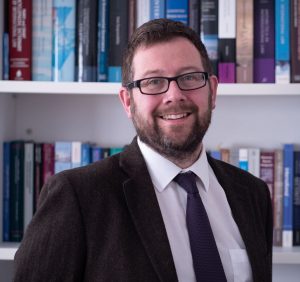
Professor Duncan French is Pro Vice Chancellor of the College of Social Science, and Professor of International Law. His research interests cover treaty law, international environmental law, and international dispute settlement. As a secondary research area, he is interested in how legislatures, especially the British Parliament, engages with international law and treaty ratification processes.
Duncan can be found on Twitter @Prof_DFrench

Rico Isaacs is a Professor of International Politics and is expert in the political sociology of authoritarianism. One component of Rico’s research agenda focuses on the role of parties, parliaments and elections to authoritarian regime durability and breakdown in the Central Asian region. Initially this work centred on the role of parties in structuring informal political competition and power dynamics and formed the basis of a book, Party System Formation in Kazakhstan: Between Formal and Informal Politics, published by Routledge in 2011, and other work published in Democratization, Europe-Asia Studies, Electoral Studies and Contemporary Politics. Recently he has returned to this research focus through a Leverhulme Research Fellowship (2018) funded project ‘Sustaining Authoritarianism: parliaments, parties and personalism in Central Asia’. This project examines the role of parliament and parties in sustaining different forms of authoritarian rule in Kazakhstan and Kyrgyzstan. Throughout his research career Rico has interviewed many parliamentarians, political elites and experts in Kazakhstan and Kyrgyzstan and he is also the current serving editor of the peer reviewed journal Central Asian Survey.

Dr Ben Kisby is a Senior Lecturer in Politics in the School of Social and Political Sciences. His research interests include British politics, citizenship theory, comparative citizenship education, comparative public policy, political participation and social capital. Ben is involved in ongoing projects on young people and political engagement. He recently co-authored an article on youth political engagement in the UK and has a co-authored paper on the ‘youthquake’ at the 2017 general election. Ben’s co-authored monograph The Rise of Character Education in Britain, critiquing this form of education, has been published in the Palgrave Pivot series.

Stephen McKay is Distinguished Professor in Social Research. Steve conducts quantitative research on issues of inequality and social structure. He has recently been working on analysing the role of Select Committees, and the career trajectories of MPs including time spent in office and on committees. He is on Twitter @SocialPolicy.

Dr Samantha Shave is a lecturer in social policy. Samantha’s research expertise centres on early welfare policies, especially the ways in which poverty relief legislation (the poor laws) impacted on everyday life in modern Britain. Samantha is particularly interested in how and why early policies were made, adopted, altered, and dropped, and seeks to understand the place of welfare malpractice and scandal within early policy processes. Their research has involved the complex linking together of various historical Parliamentary Papers with other sources, including papers and correspondence produced by government departments held at The National Archives, where Samantha completed an ESRC-funded internship. Samantha’s published work includes a monograph, Pauper Policies: Poor Law Practice in England, 1780-1850 (MUP, 2017), and research papers in variety of journals including Continuity and Change, The Historical Journal and Rural History.
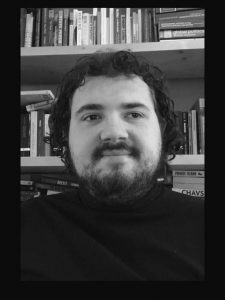
Dr Alex Oaten is an interdisciplinary researcher whose research interests intersect the areas of politics, sociology and criminology. What unifies his research is the study of political discourses and identities with a poststructuralist approach to research and knowledge. Alex has published academic work on the discourses of modernisation and anti-modernisation within British politics, the British political party system and far right extremism. He has also written for other publications such as The Conversation, Policing Insight and UK in a Changing Europe. Alex is currently attached to the Leverhulme funded ‘Suicide in/as Politics’ research project which is examining the ways in which suicide is constructed in and by political discourses. The project is a collaboration between the University of Lincoln and the University of Edinburgh. As part of this research project Alex and his colleagues are undertaking research within the UK Parliament and the devolved legislatures.
David Cutner
David Cutner is a PhD student at ParliLinc within the field of comparative parliamentary studies. His research looks to examine the law-making role of parliament, and how a deeper examination of the legislative process reveals parliament playing a much more substantial role than much of the surface level data would first suggest. David’s research will be undertaken within the parliaments of Canada, Ireland, and Scotland, and seeks to contribute towards the growing counter-narrative that suggests parliaments are far more important for the making of laws than historically believed.
David is also involved in teaching the first year Applying Research module, as well as a number of other research projects at the University, including: an analysis of Prime Ministerial appearances and contributions within parliament over time; and an examination of parliament’s role in planning for a pandemic leading up to Covid-19.
Prior to joining ParliLinc David completed an MA in International Relations and Politics at University of Durham, and a BA in Geography also at Durham.

Danilo Freire is a Senior Lecturer in Criminology in the School of Social and Political Sciences. His research focuses on public services provision, vertical and horizontal accountability, state violence, and private governance. Empirically, he has a regional focus on Latin America and his work has been sponsored by Google, the Konrad Adenauer Foundation, the Getulio Vargas Foundation, and the Brazilian Ministry of Education. He is currently researching the impact of legislature size on social and political outcomes, and how legislative reform impacts citizens’ welfare in the Global South.

Dr Andrew Kythreotis is a Senior Lecturer in Political Geography in the School of Geography, University of Lincoln. His research and teaching revolves around the broad themes of climate change and the environment and how its policy, politics and governance is constructed around socio-spatial ontologies.
Da .
Visiting Academics
.
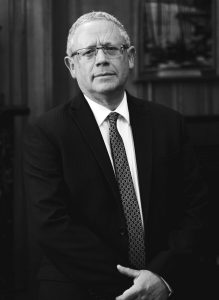
Sir Roy Stone has been a visiting professor at ParliLinc since October 2021. For over 40 years he has carried out roles at the highest level of the civil service, working closely with MPs, Ministers, and with No.10. In recognition of this service towards parliament and the public he was knighted in
2019 and awarded a CBE in 2014. He is also a fellow of the Industry Parliament Trust and was the Cabinet Office Apprentice Champion.
For his most recent role since 2010 Sir Roy Stone has served as the Director of House of Commons Business Managers, acting as the principal adviser to the Leader of the House of Commons, Chief Whip and their respective Ministerial Teams. He was responsible for the delivery of the legislative program and advise on policy, procedural and parliamentary issues. This role also included extensive interaction with the devolved institutions to establish consistent legislation and policy objectives. Prior to this for 10 years he served as the principal private secretary to the Government Chief Whip, again acting as an adviser to the Chief Whip, Ministers, and MPs, and having a unique experience of working as a “Sherpa” between political parties with a close working relationship with No.10. Roles prior to 2000 include: serving as a parliamentary clerk for Margaret Thatcher, John Major, and Tony Blair; working as a duty clerk in 10 Downing Street; and roles within the Ministry of Defence.
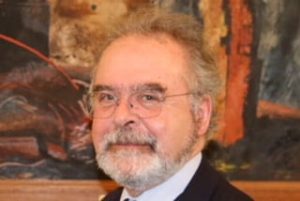
Paul Evans is a Visiting Professor of the University. Paul joined the House of Commons service in 1981 and retired in 2019 from the post of Clerk of Committees, responsible for the 300 staff supporting the House’s select committees.
His edited volume, A History of Parliamentary Procedure: Essays in honour of Thomas Erskine May, was published in 2017. An eighth edition of his Handbook of House of Commons Procedure and his jointly edited twelfth edition of The Parliamentary Assembly of the Council of Europe were published in 2012. He is an honorary research associate of UCL, a Fellow of the Academy of Social Sciences and a Fellow of the RSA. He serves on the ESRC Grant Assessment Panel C for politics and international relations. He has also been appointed as a user impact assessor for REF2021 on Sub-panel 19 of Panel C, reprising a role he had for REF2014. He is currently working on a new edition of Johnson and McKay’s Parliament and Congress for OUP. He was awarded CBE in the Birthday honours 2019.
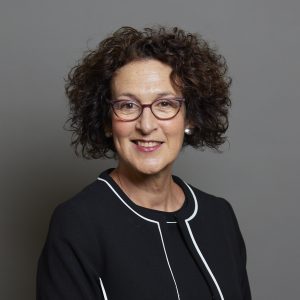
Baroness Gillian Merron is a Life Peer having been elevated to the peerage in April 2021 as Baroness Merron of Lincoln in the County of Lincolnshire, following which she was appointed as Shadow Health and Social Care Minister and Shadow Digital, Culture, Media and Sport Minister. Previously she was Chief Executive of the Board of Deputies of British Jews.
Baroness Merron also served as MP for Lincoln between 1997 and 2010, during which time she was a government minister in five departments and a Senior Government Whip. She joins a growing network of ParliLinc experts, supporting teaching and research in the School of Social and Political Sciences.
Emeritus Professor Hugh Bochel

Hugh Bochel is an Emeritus Professor in the School of Social and Political Sciences. Hugh’s experience of research on parliament began during the 1980s with work on MPs’ attitudes to welfare (with Peter Taylor-Gooby). He returned to that topic in the mid-2000’s with Andrew Defty,
including the publication of Welfare Policy under New Labour (Policy Press, 2007), and articles in journals including the Journal of Social Policy and the Journal of Legislative Studies. Hugh and Andrew with another colleague Jane Kirkpatrick, then undertook further work on parliamentary scrutiny of the intelligence services, again published as a book, Watching the Watchers (Palgrave Macmillan, 2014), and articles in Intelligence and National Security and Parliamentary Affairs. During 2017 Hugh was an academic fellow in the Scottish Parliament, producing a report on diversity and committee witnesses, following which the Parliament developed an action plan to encourage greater diversity among witnesses. Hugh has also undertaken a variety of other research across areas of social and public policy.

Dr Catherine Bochel is a Visiting Senior Fellow in Social and Political Sciences. Her research on legislatures focuses
on public engagement and from 2016-19 was a House of Commons Academic Fellow undertaking research on Parliament’s engagement with the public. Catherine also researches petitions systems in the Scottish Parliament, the National Assembly for Wales and Westminster. She is a member of the Study of Parliament Group, and the Political Studies Association Parliaments Group. She has recently published articles on petitions systems in Parliamentary Affairs, The Journal of Legislative Studies, and on parliamentary scrutiny with ParliLinc colleagues. She has given evidence to a number of select committees and has contributed a number of blogs on legislatures and engagement.
Phil Wilson
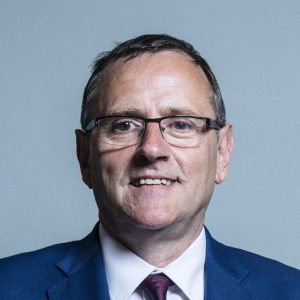
Phil Wilson grew up in a Durham colliery village, his father was a coal miner. Phil was the Member of Parliament for Sedgefield between 2007-2019. He worked for many years for Tony Blair and now works part-time for the Tony Blair Institute for Global Change. In 2008, he was Parliamentary Private Secretary to the then Police Minister Vernon Coaker and from 2009-2010 to the then Secretary Of State For Health, Andy Burnham. Between 2010 -2015 he was an Opposition Whip. He was appointed by the Speaker of the House of Commons to the Panel of Chairs in 2015, and involved chairing legislation through its committee stage in the House of Commons as well as other duties. Phil was also a member of the House of Commons Defence Committee. He was also a member of the British delegation to the Council of Europe. During the Brexit debates in the House of Commons, Phil, along with Peter Kyle MP, designed the Kyle-Wilson amendment which would secure the passage of the Brexit ‘Deal’ through Parliament only if the ‘Deal’ was put to the British people for the final say. The amendment was narrowly defeated in a Commons vote. Phil is currently researching a book into the rise of the Labour party in its traditional heartland of County Durham, where he lives with his wife Kerrin, and why the county turned its back on Labour in 2019. His pastimes include taking his dog Bix for long walks and listening to jazz.
.
Research Associates
.
Brigid Fowler
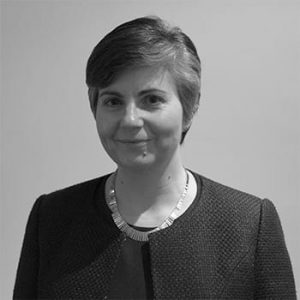
Dr Brigid Fowler is a Senior Researcher at the Hansard Society, the independent research and education Society focused on the UK Parliament. Her work covers issues including Parliament’s role in Brexit and treaty and trade agreement scrutiny; delegated legislation; select committees; parliamentary procedure; and public engagement. From 2007 to 2014 she was a Committee Specialist for the House of Commons Foreign Affairs Committee, where she led on the Committee’s EU-related work, and she has worked for an MEP in the European Parliament in Brussels and Strasbourg. She has also been an analyst and researcher on EU and European affairs in the private sector, at the University of Birmingham and King’s College London, and for the official ‘Remain’ campaign in the UK’s 2016 EU membership referendum. She has given evidence to select committees, published several journal articles and book contributions, and provides media comment and is active on Parliament-related Twitter.
Matthew Taylor

Until his retirement, Matthew was Director of Resources for the UK Parliamentary Digital Service and formerly Director of Parliamentary ICT, Director of Operations and Member Services, and Director of the Parliamentary Communications Directorate. Whilst Head of Parliamentary ICT he was a member of the House of Commons and House of Lords management boards, having collective responsibility for the leadership and management of the Houses of Parliament. He oversaw the delivery of digital services to approximately 8,000 Parliamentary users (members, their staff and staff of the administration) in more than 2,000 locations across the UK. He led ICT policy development and programmes for new services at four General Elections – innovating member services and managing key stakeholders (members, select committees, the commission, regulators, staff, suppliers and the media). In addition to his ICT, digital and senior management responsibilities he was a member of the UK Parliament’s Silver command and took the operational lead in the event of major incidents.
Matthew is currently Vice Chair of a mental health charity, on the Finance and General Purposes Committee of a London housing association and an Associate with Global Partners Governance.
Matthew has a particular interest in governance and public accountability.
Lord Cormack
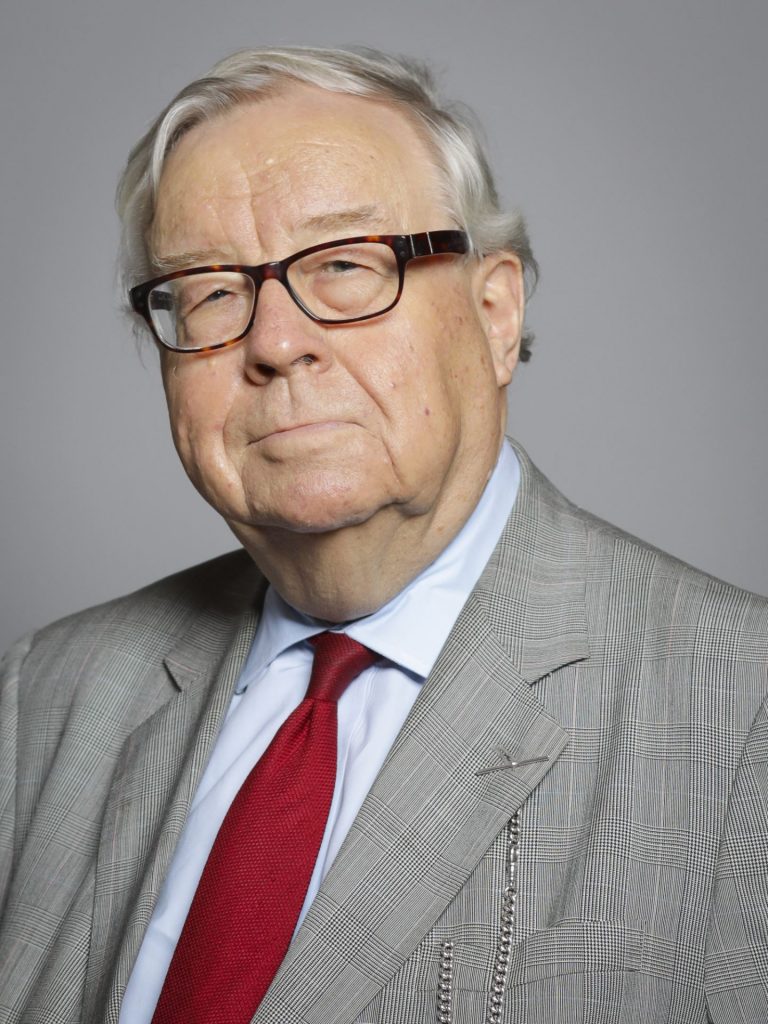
Lord Cormack was for ten years a schoolmaster, in Lincolnshire and in Shropshire and Staffordshire before entering the House of Commons in June 1970. In 1964 Lord Cormack had contested the Bolsover division of Derbyshire and, in 1966, his home town of Grimsby. He has now been in Parliament for fifty-one years, having served in the Commons until 2010 and in the House of Lords from 2010.
He has taken a particular interest in the constitution and the evolution of Parliamentary democracy. In the House of Commons he was a Chairman of Committee for fifteen years, a member of the House of Commons Commission and Chairman both of the Works of Art Committee and of the History of Parliament Trust, a role he continued until 2017. He was Chairman of the Select Committee on Northern Ireland in the House of Commons and in the House of Lords he is Chairman of the Campaign for an Effective Second Chamber, a body comprised of over 200 Peers and Members of Parliament. He founded this with Lord Norton of Louth in 2001. It campaigns for the continuation of an appointed rather than an elected House as it believes in the supremacy of the elected House and that two elected Houses could lead to Parliamentary gridlock. It also maintains that an invaluable feature of the current House of Lords is the presence of some 25% independent, or Cross Bench, Members.
You must be logged in to post a comment.